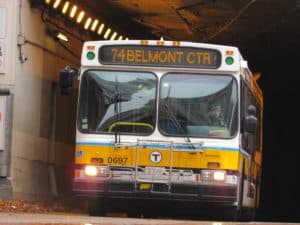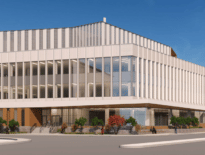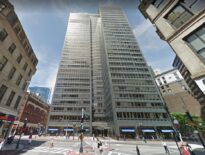Boston Mayor-elect Michelle Wu’s push for a fare-free T has generated a lot of buzz on Beacon Hill, and now House Speaker Ronald Mariano wants his concerns about MBTA maintenance to catch her attention.
With Wu set to take the oath of office next week after cruising to victory in the Boston mayoral race, Mariano and Senate President Karen Spilka on Monday did not outright endorse or oppose her public transit agenda that includes running the region’s buses, trains and ferries without charging riders.
“I’m probably more concerned about the running of the MBTA right now than anything else,” Mariano, a Quincy Democrat who noted that he has four T stops in his city, said. “I’m concerned about the maintenance of the physical plan and the facilities more than anything else, and those are my priorities. I’m willing to talk to the mayor of Boston about any of hers, but I want her to know what my priorities are.”
Asked if he’s had any conversations about the mayor-elect’s agenda with House Ways and Means Committee Chair Aaron Michlewitz, a North End Democrat who supported Wu, Mariano replied simply, “No.”
Spilka said she looks forward to meeting with Wu and learning more about her priorities. “There may not be a role for us, but I look forward to working with her,” Spilka said.
Wu’s push has drawn skepticism from Gov. Charlie Baker, who said in an interview with WCVB’s “On the Record” that “there’s no such thing as a free lunch” but indicated a fare-free MBTA could be worth discussing if the city pays for it.
Co-host Ed Harding introduced the topic as one that “bubbled to the surface during the Boston mayor’s race.” Mayor-elect Michelle Wu ran on a platform championing fare-free transit, which would require buy-in from Beacon Hill. The MBTA is governed by a new board featuring five Baker appointees, Transportation Secretary Jamey Tesler — a member of Baker’s Cabinet — and Quincy Mayor Thomas Koch, a Baker ally appointed by the MBTA Advisory Board.
Baker said the T’s fares “are affordable and competitive” and cited a need to continue to invest in the transit system. A one-way subway ride costs $2.40.
“Somebody’s going to have to come up with a lot of money from somebody, and I do think if they city of Boston is willing to pay to give free T to the residents of the city of Boston, that’s certainly worth the conversation, I suppose,” he said. “But I don’t see a reason why you would expect people who live on the Cape, on the North Shore, in central or western Mass. who will never be anywhere near the T except on very rare occasions — why they should pay to give everybody in Boston a free ride does not make any sense to me.”
In June, the MBTA’s prior board voted to require staff to draft plans for a pilot program offering free or reduced fares to low-income riders. Baker in January vetoed language from a transportation bond bill that would have required the launch of a low-income fare program.
In fiscal 2020, fares accounted for about $694 million of the transportation authority’s $2.08 billion in revenues. The T’s core network of services is in Boston but it also serves dozens of communities in the regional surrounding the city.




 |
| 


